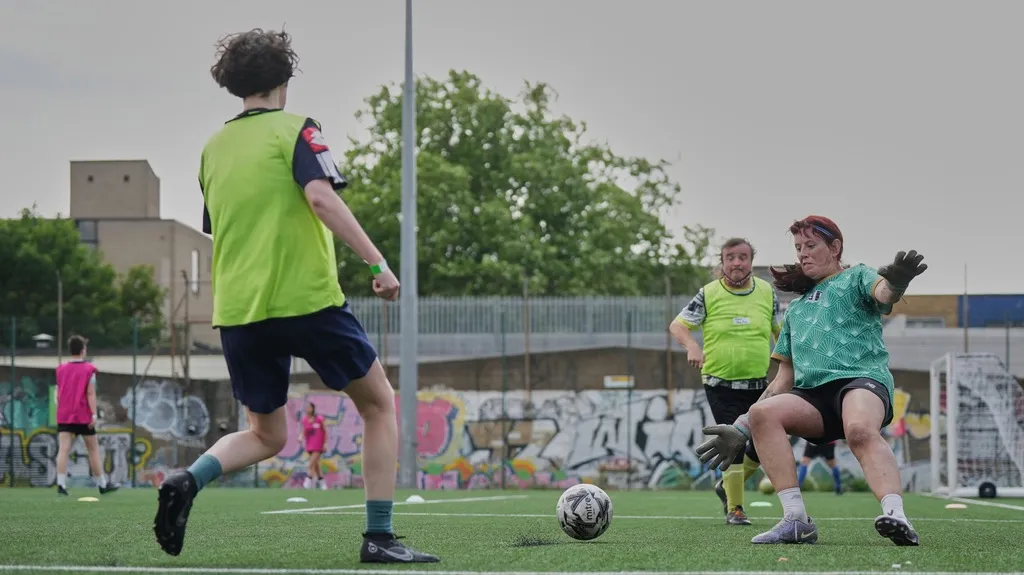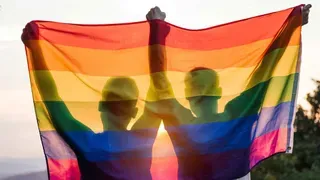February 24, 2014
Sochi Cleans Up as World Leaves Olympics Behind
Jason St. Amand READ TIME: 4 MIN.
By the busload, the world's athletes and visitors rolled toward Sochi's airport and took off for home Monday, fresh from a Winter Games experience that many Russians pronounced a smashing success and that the Olympic movement's chief enthusiastically labeled a victory for the region and the host nation. "Yes! We did it!" one Olympic volunteer exulted as she darted into the night.
After 17 days of global sport and spotlight, Sochi ended the spirited chants of "Ro-ssi-ya! Ro-ssi-ya!" and started cleaning up.
Travelers through the region's airport, rebuilt completely for the games, reported briskly moving security lines and check-in times of anywhere from 10 minutes to three hours, depending on destination. On what was predicted to be the heaviest Olympic-related travel day, the transit situation seemed to come down to this: It was like a busy morning at any normal big-city airport.
By the Black Sea coastline, Olympic Park, which will be hosting events at the upcoming Paralympic Games, had cleared out. Like the city of Sochi around it, the park felt deserted except for the legions of volunteers in multicolored patchwork jackets who still patrolled the area. Most security barriers remained in place in anticipation of the Paralympics, but security was noticeably more relaxed.
These Winter Games, Russian President Vladimir Putin's political showpiece and bragging trophy, convened under storm clouds - international concerns about gay rights and fears of a terror attack among them. But athletes overwhelmingly chose not to use the Olympic stage to make any statements, and the games opened and closed with vigorous (if sometimes spotty) security and no sign of any potentially violent activity.
When it came to logistics and sports, Russia outdid itself. Beyond initial grumblings about unfinished hotels and stray dogs, the Olympic infrastructure performed close to flawlessly. And the athletes: The home team claimed 33 medals, its largest haul ever - even counting the Soviet Union days - and a far cry from the 2010 performance in Vancouver that disappointed Putin and so many Russians.
"Russia has delivered on its promise," said Dmitry Chernyshenko, head of the Sochi organizing committee.
The successes - and a visually rich closing-ceremony tour through Russian history that ended with a handoff to the next Winter Games host city, Pyeongchang in South Korea - produced a party-like-it's-1999 atmosphere across the finally chilly Olympic Park during Monday's early hours.
Young Sochi Games volunteers, restrained and professional for 17 days, busted loose, running around outside Fisht Stadium with whoops, hollers and squeals. Selfies gave way to enthusiastic group shots - and group hugs. "Thank you for coming! Thank you for being here!" volunteers shouted to passing visitors as Olympic Park emptied out.
"Amazing. Look at this. Look at what we got done," said Viktor Virchenko, a heavily mustachioed folk dancer from nearby Stanitsa Leningradskaya who was cheerfully stalking Olympic Park early Monday in traditional woolen hat and 19th-century regalia. "I am very proud," he said.
IOC President Thomas Bach, closing the games Sunday night, eschewed the wording of predecessors that sometimes tried to assess the overall quality of a particular Olympics. Instead, he focused on calling them "the athletes' games" and spent many words praising both the region and Putin. Russia, Bach said, came through when it needed to.
"What took decades in other parts of the world was achieved here in Sochi in just seven years," he said.
Which raises the question: What happens to Sochi next, now that it has been effectively built up from scratch? After billions in investment and a world-class event pulled off successfully, it has a G-8 summit and Formula One racing just around the corner.
But can it be a resort region with long-term viability, or will it - despite its mountains and water so conveniently close together - suffer the fate of some other former Olympic cities and struggle to bring the masses to its doorstep? Bach, for one, says it "definitely has a future" after a previous bid and two decades of preparation.
"Seeing now, 20 years after this transformation, it was really amazing," he said in the hours before the Olympics ended. "And now it will be important to secure the legacy of this games."
Many Russians give all credit to Putin.
"Good for him, our president. He built all this, developed all this. We didn't have this kind of resort before," said Sergei Lesnikov, a 54-year-old hockey coach from the city of Kirov. ""After the Olympics it will remain. ... Tell your friends and family to come and see it here. It's not so bad."
And Russia itself? Though the memorable images of the Sochi Games include Cossack militiamen beating young women activists, the overall impression is one of competence, optimism - and, of course, athletic prowess.
The country's deputy prime minister, Dmitry Kozak, paints a rosy picture of today's Russia - and tomorrow's: "The games have turned our country, its culture and the people into something that is a lot closer and more appealing and understandable for the rest of the world."
This article is part of "Sochi-ology," an EDGE special report series chronicling the social and political events surrounding Winter Olympic Games in Sochi, Russia. Visit the full list of Sochi-ology stories here.



